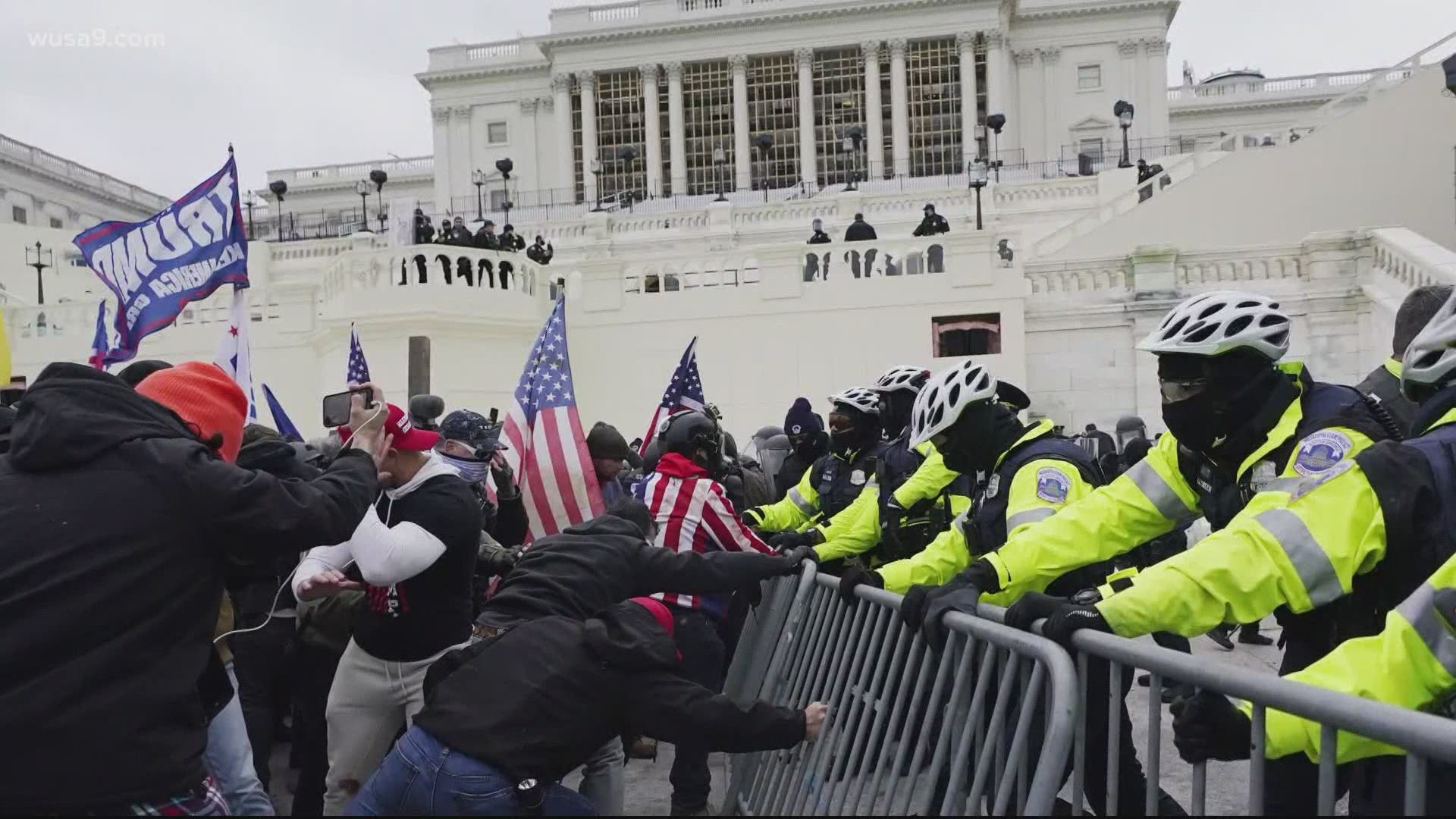WASHINGTON — It can be easy to lose count of the unique challenges the U.S. Capitol Police force has faced since the attacks at the Capitol on Jan. 6 forever changed the lives of the more than 2,000 men and women who work for USCP.
The department is currently under investigation by four Congressional committees, and an inspector general. Several officers were hospitalized for serious injuries suffered during the riot. The force lost two officers – one who died during the attack and another died by suicide following the riot, according to the police union.
That same union called for a vote of no-confidence in senior leadership and Acting Police Chief Yogananda Pittman, who has been filling in since former Chief Steven Sund resigned after the Capitol attack.
RELATED: Capitol Police Union leader: Members within the department should replace embattled top brass
Thirty-five individual Capitol Police officers are under internal investigation, six of them suspended with pay, for alleged misconduct, according to USCP administration.
“I have asked retired Lieutenant General Russell Honore to lead an immediate review of security infrastructure, interagency processes and command and control," Speaker of the House Nancy Pelosi (D-Calif.) told WUSA9 when asked what reforms she wanted to see in Capitol Police.
Capitol Police don’t just guard the Capitol and surrounding congressional office buildings. Their patrols take them as far as the area around Union Station.
Looking at Capitol Police’s arrest logs on any given week through 2020 shows that when they would arrest someone, it was usually for trying to trespass into one of the office buildings, or a traffic violation in the surrounding area. Some weeks, Capitol Police arrested no one at all.
At times, USCP faced danger and made subsequent changes. In 1954, It took on four Puerto Rican nationalists gunning down members of Congress inside the chamber. In 1998, two Capitol Police officers were killed when a lone gunman stormed in, which led to the construction of the Capitol Visitors Center. Capitol Police also stopped the 2017 shooting at the Congressional baseball game in Alexandria.
But despite a mob descending on the Capitol, Rep. Tim Ryan (D-OH), whose committee oversees Capitol Police, was surprised to discover the 1,200 officers on duty Jan. 6 faced a restriction he viewed as surprising considering what happened.
"They were under assignment not to use lethal force," he said.
It took Ashli Babbit nearly breaking into the House chamber for a Capitol Police officer to use their weapon.
Rep. Ryan had words of warning for Capitol Police leadership.
"Talking to the rank and file members, there was a great deal of confusion, minute to minute on January 6 as to what to do, where to go, what the posture was, where the backup was," Ryan said.
WUSA9 showed Maryland’s former police training lead, Everett Sesker, video of the attack. These were his thoughts:
"This line, they’re being flanked," he said, watching the video. "More officers here. I don’t know whether these officers knew what was happening on the other side. It’s like when you get into that mode, you’re defending something, you are tunnel vision ... But there’s got to be somebody continuously feeding information, feeding you intel."
Capitol Police recruits receive 26 weeks of training, half of it at their academy in Maryland.
"We’ve also reinstituted critical emergency training and will be providing officers with additional training based on the lessons we have learned," Acting Chief Yogananda said in a recent video statement.
Acting Chief Yogananda did not respond to WUSA9's requests for comment.
US Capitol Police just barely succeeded in its primary mission on Jan. 6: defending the lives of members of Congress. But the mission came at a heavy cost, in prestige, in careers and in lives.
We don’t know all the changes in store for the force, because the investigation into how the attack happened is still ongoing. Police leadership says the officer association’s no-confidence vote result may not result in changes at the top.
What is certain is that more than 2,000 men and women, our neighbors, face workplace challenges unthinkable less than two months ago.
A joint oversight hearing is scheduled for Tuesday, Feb. 23, at 10 a.m. Testimony is expected from:
- Robert Contee, Chief, Metropolitan Police Department
- Michael Stenger, former Senate Sergeant at Arms
- Paul D. Irving, former House Sergeant at Arms
- Steven Sund, former Chief, U.S. Capitol Police


